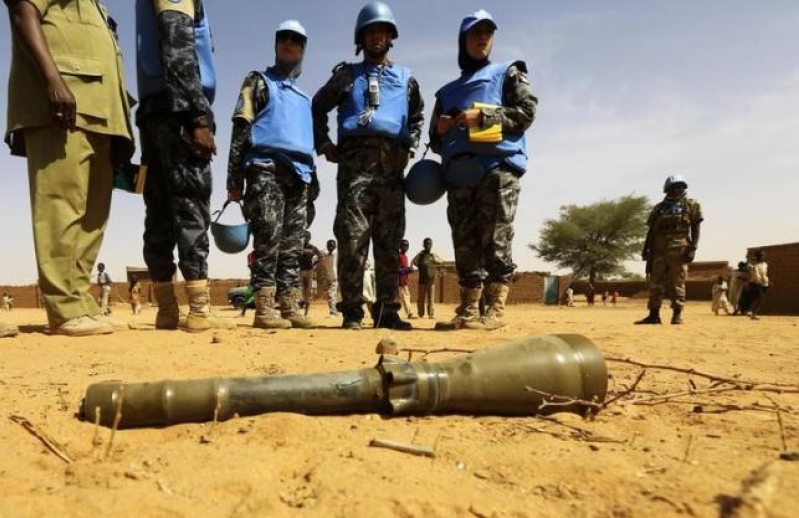
Sudan has begun releasing food rations and other supplies for international peacekeepers in the conflict-torn Darfur region, though some of the more than 200 shipping containers have yet to be cleared by Khartoum, the United Nations said on Wednesday.
The blocked shipment has been a source of tension between the U.N. and Sudan, which accused the leadership of the U.N.-African Union mission (UNAMID) of ignoring agreed mechanisms for dealing with disagreements.
Last week the United Nations and members of the U.N. Security Council accused the Sudanese government of withholding the supplies for UNAMID, making it difficult for its nearly 20,000 troops and police to do their job.
But exactly one week later the containers started to move.
"UNAMID reports that 52 containers have been released by the Sudanese authorities and are presently being loaded and moved by the contractor to Khartoum from Port Sudan," U.N. spokesman Farhan Haq said in a statement.
"A further 91 containers are currently being processed while the remaining 60 are at different stages of the clearance process," he added.
The Darfur conflict began in 2003 when mainly non-Arab tribes took up arms against the Arab-led government in Khartoum, accusing it of discrimination.
According to the United Nations, as many as 300,000 people have been killed, some 4.4 million people need aid and more than 2.5 million have been displaced. Although the killings have eased, the insurgency continues and Khartoum has sharply escalated attacks on rebel groups over the past year.
U.N. officials and diplomats said Khartoum had justified holding the containers by saying that UNAMID, which began operations in 2007, did not have proper clearance for the shipment.
Sudan's U.N. Ambassador Omer Dahab Mohamed pinned the blame on the mission's leadership. He told Reuters that UNAMID chief Abiodun Bashua had "intentionally ignored and surpassed" agreed mechanisms for dealing with issues such as the containers and the issuance of visas.
UNAMID, he said, passed on "incomplete and out-of context information which led to bringing the issue to the highest political organ of the U.N., the Security Council. In the end, the wisdom of all members of the Council prevailed."
The U.N. peacekeeping department did not have an immediate reaction to the Sudanese complaint.
The United Nations had said the holdup involved mostly food rations but also a few containers with what it described as essential "operational supplies." Diplomats told Reuters that the operational supplies included communications equipment
(Reporting by Louis Charbonneau; Editing by W Simon and Steve Orlofsky)







